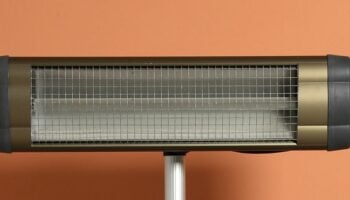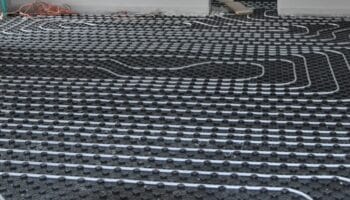Does one of your radiators feel stone cold even after you have bled it? Then in this article, you’ll find 5 reasons why this happens and some handy instructions that will help you to fix the problem.
| Why the Radiator Is Cold | How to Fix It |
| Stuck (TRV) pin Unbalanced system Insufficient boiler pressure Sludge build-up Faulty pump | Loosen it with a wrench Shut the other radiators off Regulate the boiler pressure Flush it out Replace it |
Are you ready to fix the cold radiator in your home? Then take a look at the extended instructions below that will help you to eradicate this problem and enjoy a toasty, warm evening.
5 Reasons Why Your Radiators Are Cold
When the weather turns and it starts to get cooler, the last thing you want is to be stuck in a cold room with no heating. So, what should you do when your radiator is not responding? Is there anything you can attempt to bring it back to life?
When just one radiator is not working, the first thing we usually do is bleed it. And that’s a good way to begin narrowing down suspects and locate the problem. But what should you do when your radiator is still cold even after you’ve bled it? To find out, make sure you read the following 5 things that could be wrong with the radiator and what you can do to fix it.
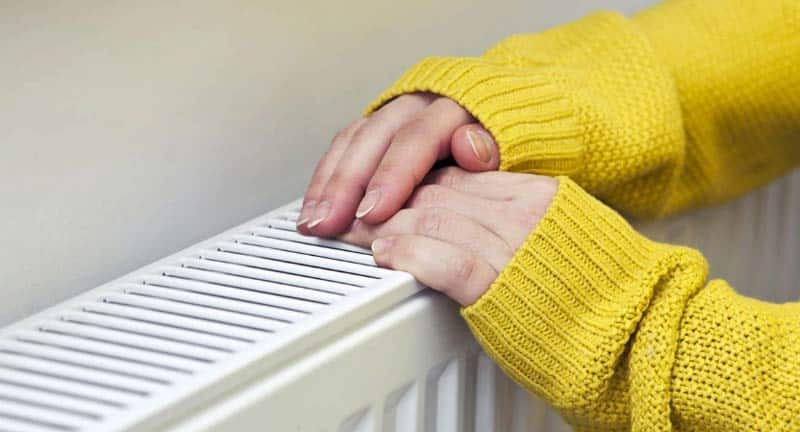
There are several reasons why your radiator is cold.
Reason #1 The (TRV) Pin Is Stuck
Walking into a bitterly cold room when the rest of the home is cozy and warm is unpleasant. It’s even worse when that one cold room is your living room or bedroom. So, let’s press on and jump straight to the first reason why your radiator is cold and what you should do to fix it.
One of the most common reasons for a radiator to go cold is that the (TRV) pin is stuck. Now, let’s pause here. What’s the (TRV) pin? (TRV) stands for Thermostatic Radiator Valve. This valve controls how much hot water flows into a radiator. It does this by monitoring the temperature in the room. If the pin is stuck, this mechanism will not work properly.
So, if your (TRV) pin is stuck, what should you do? The best solution to this problem is to grab a wrench and loosen it. Here are all the instructions you need to complete this job:
- Turn your central heating system off
- Locate the (TRV). This is the fatter of the two radiator valves. It is the one with the numbers around the dial.
- Remove the cap on the (TRV)
- Use a wrench to grasp the pin that is stuck in the off position. Use the wrench to tease the (TRV) pin and move it up and down. This should free the pin and allow hot water to flow back into the radiator again.
- Return the cap to the (TRV)
- Turn the central heating system back on and monitor the radiator
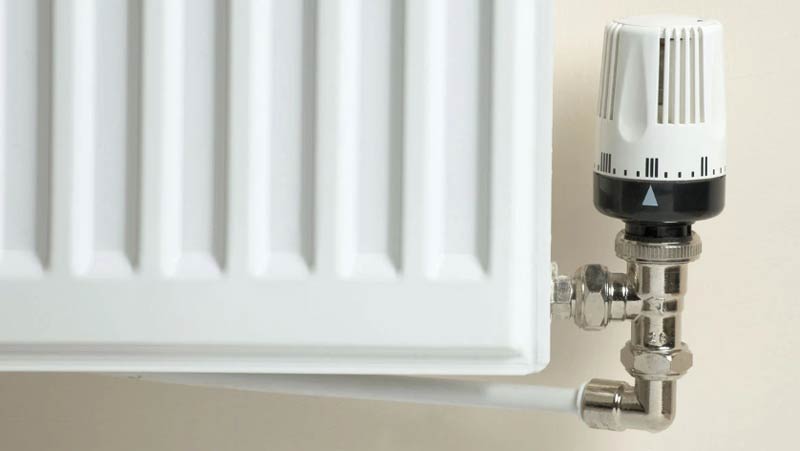
Reason #2 The System Is Unbalanced
Another common reason why a radiator would stay cold after you bleed it is because of an unbalanced system. This is often the case when your radiators are new. But perhaps you wonder, why would new radiators have a balancing issue? Here are some of the main culprits:
- You have had an extra radiator fitted recently
- You have had a radiator removed and put back on the wall within the last few months
When having these types of jobs done, it is easy for your central heating system to become unbalanced. Because of the imbalance in the system, the radiators do not heat up evenly. You will find this is especially the case with the radiators on the ground floor of your home. So, what should you do to put things right again? Try following these steps:
- Turn all of the radiators off in your home except for the one that is not working
- Turn your heating on. The radiator that was not working should eventually get hotter.
- When that radiator gets hot, begin to put the other radiators on by turning their valves just halfway. You should do this one radiator at a time. Allow each radiator to get hot before you move the valve on the next one.
- Test the temperature of the faulty radiator
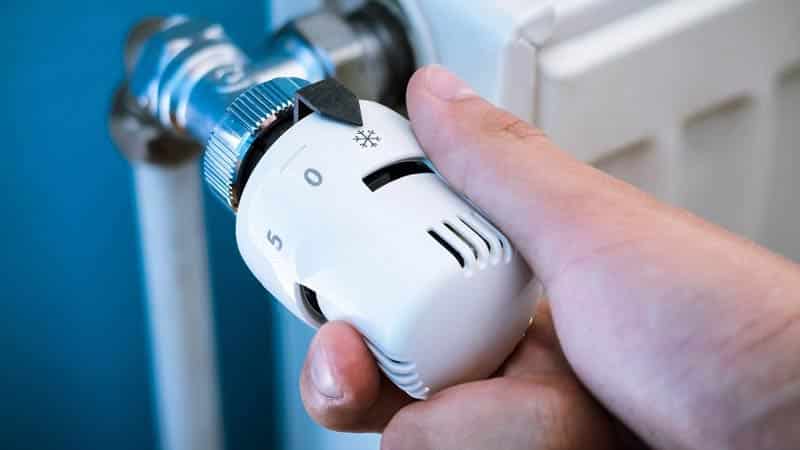
Reason #3 The Boiler Pressure Is Insufficient
Some people cope well when working under pressure and your boiler does too. In fact, if it is not under enough pressure, it could fail to work properly and will stop heating your radiators as it should. If one of your radiators is cold, it could be because you need to adjust your boiler pressure.
If you’re not sure how to adjust your boiler’s pressure, it is best that you call your HVAC technician for advice. They will be able to indicate to you the best pressure for your home depending on the size and capacity of your heating system.
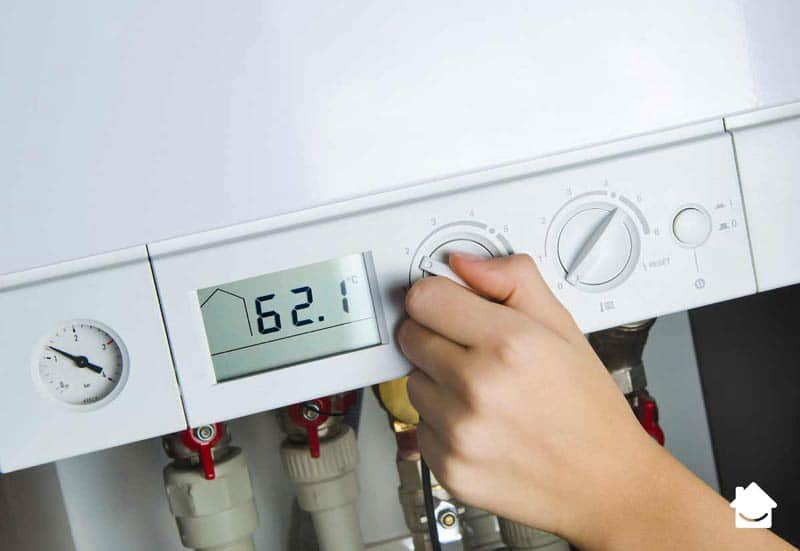
Reason #4 It has a Build-Up of Sludge
Are the radiators in your home getting on in years? If your radiators are over 8 years old then you may need to think about changing them. Older radiators may go cold because they have a build-up of sludge inside them. This will not go away even when you bleed the radiators. The only way to get rid of the sludge is to flush the radiators out. Here’s how to do it:
- Shut off the central heating system
- Turn the radiator off at both ends
- Take the radiator outside and flush it out with clean water. The water should flush the sludge out from inside it.
- Reattach the radiator
- Turn it on at both ends
- Turn the central heating system back on and monitor the radiator
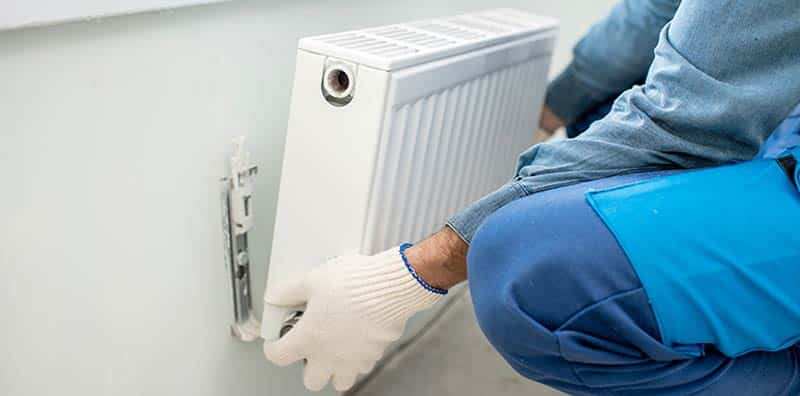
Reason #5 The Pump Is Faulty
How can you tell if your central heating system is showing signs of wear and tear? One common indicator is when it stops working at full speed. If your central heating pump is old, it will not be able to pump hot water quickly around your radiators like it used to. This might be the cause of your cold radiator issue.
If a faulty pump is what’s stopping your radiator from heating through, you should replace it. With a new pump working on the system, it should be able to supply all of your radiators evenly with hot water.
You should expect your pump to last anywhere between 10 and 20 years. But, if you are unsure whether it is time or not to replace your central heating pump, you should contact your HVAC technician. They will be able to take a look at the system and determine the best moment for replacing its parts.
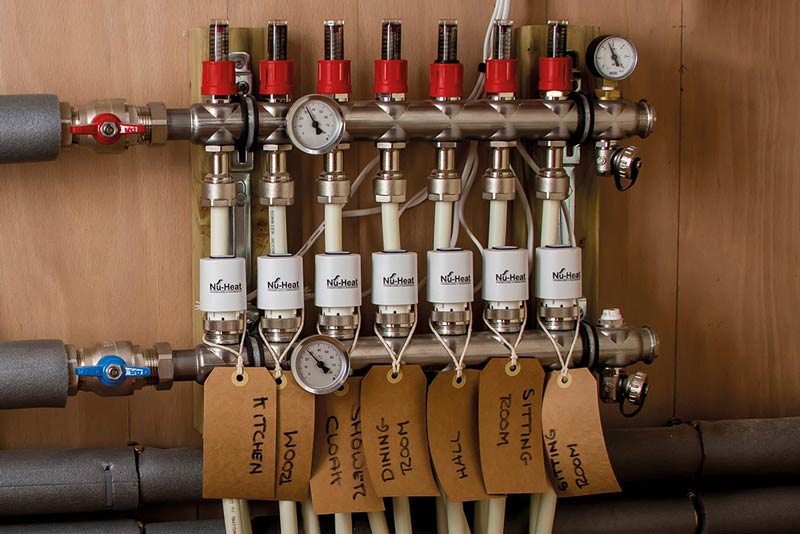
Conclusion
Is one of your radiators on what seems to be a worker’s strike? Have you tried bleeding it but it still doesn’t work properly? Then thankfully, this article has been jam-packed with 5 reasons why this happens and what you can do to fix it. I’m sure it has got you on the road to mending or replacing parts of your central heating system.
If this article has helped you, please consider supporting us by checking out some more of our free guides or signing up to our e-mail list.
Thanks for reading, and have a great day!
Cheers,
Craig





